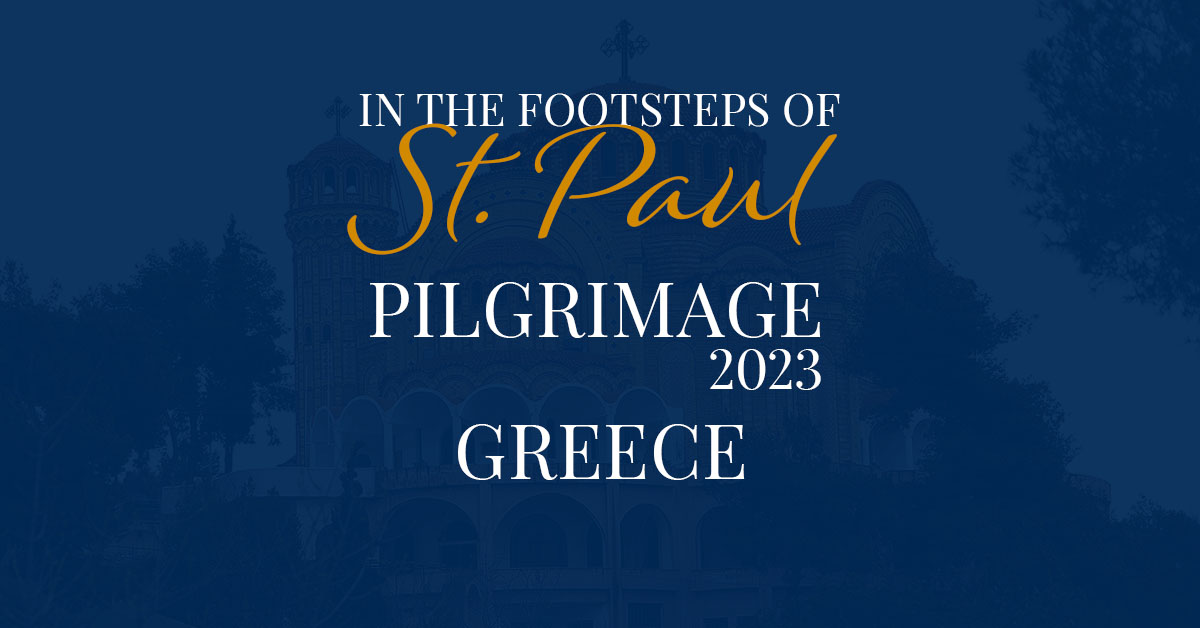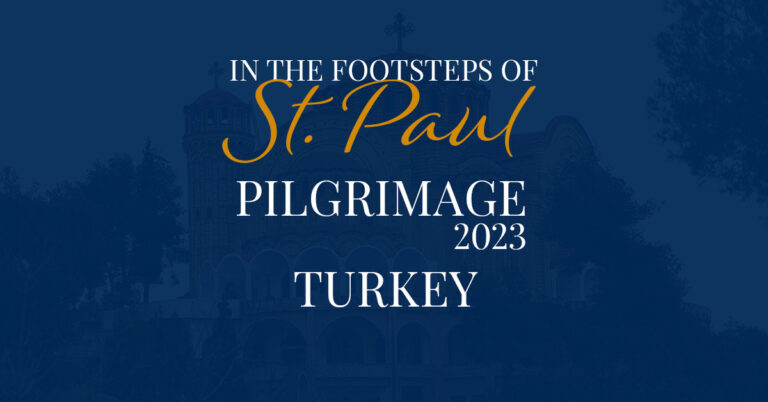“Hoping Against Hope” with the Saints
Why am I such a pessimist? There can be so much good circling around me everywhere, and I choose to focus on the bad. It’s very clear to me that Saint Paul was far from being a pessimist. My fellow seminarians and I are going through Acts of the Apostles with Fr. Kasule, reading about all the sites to which Saint Paul traveled. After preaching in a synagogue in Antioch, Saint Paul gave the Good News to the gentiles — that the Gospel, and so salvation, was to be offered to them also. But this caused a stir, and the Jews in Antioch were divided, and many drove him out of town. Taking his friend Barnabas with him, “…they shook off the dust from their feet against them and went to Iconium. And the disciples were filled with joy and the Holy Spirit.”

My pessimism continued when we arrived in Iconium, today called “Konya” (when the Turks took over all of Asia Minor and Galatia, they renamed everything!). Today, at least in Konya, there was no site of Christianity. So far, at least in the other cites, we could say this giant heap of rubble was a synagogue, or this was the road where Saint Paul certainly walked on if he came through this city. Instead, Konya today is a massive and luxurious city surrounded by believers but of another religion. Why then would Paul be excited to go to “Konya” — filled with joy — if all his efforts there would be for nothing? The Gospel there did not take root. Why bother?

I’ve been asking the Lord to give me a Damascus moment. I’ve been asking him to, as it were, knock me off my horse. Saint Paul’s conversion, you see, took place after he had been persecuting the Church blindly – getting his way, sure. But he was probably ruthlessly miserable as he was getting his way. And so, again, after seeing the Lord and falling (who knows if there was a horse or not), “something like scales fell from his eyes,” and he began proclaiming that Jesus “is the Son of God” and the people were in disbelief that this could be the same man notorious for persecuting Christians (Acts 9: 18-22).
My miniature Damascus moment, and the most meaningful moment of my pilgrimage so far, was praying at the tomb of Saint John the Apostle – or as I like to call him, the Beloved.

If you’re ever in Ephesus hoping to visit the Saint, a word of warning: again, there isn’t much! Giant weight-bearing columns stand only bearing the elements of the celestial dome. Roped off to the right, a small slab reads, over a 7-by-7-foot slab of limestone, first in Turkish, then in English, saying “the Tomb of Saint John.” After praying at the tomb of John the Beloved, one of my pilgrim companions shared that it is unclear if there’s even anything underneath there. I was shocked since I had just had a moving experience at Saint John’s tomb.
“Scales fall off!” I thought as we hopped back on the bus to go to the next Pauline stop. What are your scales? My scales are pessimism. It was only in seeing the damage that can be inflicted on me and my faith by others that I realized how my own pessimism needed to go. Pessimism is venomous.
So what if the bones of Saint John aren’t there? I was there, God was there, and his saints’ relics were there because they once walked on a Roman road or were momentarily laid to rest in this area, God can bring about so much good. So what if all of Turkey is only 1 percent Christian now? Were not the 7 fish and 2 loaves enough for the Son of God to work wonders with the feeding of the multitude? Saint Paul moved to Iconium with joy, wasting his time some might say, because that city would not retain the faith, but God always has a bigger purpose.
I don’t know if all my scales have fallen off. I like to think that the scales of pessimism began to fall off that day at St. John’s tomb. More fell off when I saw the thriving small Catholic and Christian communities in Istanbul!

You all should go to Istanbul if you can. It’s twice the size of metropolitan Chicago and, again, most of its inhabitants are Muslim. Go to Mass there, and you’ll be proud of our Christian brothers and sisters, holding down the fort. Christ was born in the most desperate of circumstances perhaps to show us all about the joy that exists between the bleakness that Paul experienced, failed mission after failed mission. Scales fall off! May our companions Saint John the Beloved and Saint Paul the Apostle remove the scales from our eyes, pessimism or other, and guide us to the One Who is Joy Himself.

-Cristian Garcia, Archdiocese of Chicago


